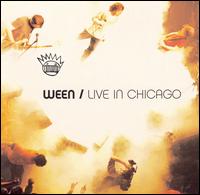They’ve been called the best rock band in America by such “venerable� institutions as Time Magazine and Rolling Stone. They’ve been revered by the indie nation for both their feminist and sympathetic foreign political views. The Portland-based Sleater-Kinney has been offered pretty much every accolade they could ever hope to achieve from their firm position in the independent music world. Whether they’ve ever deserved any of the praise before now is questionable and honestly, after One Beat, irrelevant. One Beat is the record that earns Sleater-Kinney the praise that they have so generously been given in the past and it only took them six albums to do it.
On One Beat, finally all of the elements have fallen into place. To me, Sleater-Kinney have always sounded a little stuck; the major complaint being that they have always stuck to the Flipper dynamic of hammering one riff into oblivion with only minor variations while singer Corin Tucker awkwardly tries to fit her overtly political lyrics around the sonic deluge. This time around, all of the elements that everybody else said made Sleater-Kinney great are still present but with a new sense of song structure (probably afforded by the addition of the extra instrumentation on One Beat) that forces SK to open up their arrangements and give Tucker the space she deserves. There is a flow on One Beat that has been here-to-fore absent in Sleater-KinneyÂ’s work; where their previous records tended to plod through each track, here guitarist Carrie Brownstein and drummer Janet Weiss set up more atmospheric and groove oriented back that allow TuckerÂ’s voice (which has eased back on the vibrato, thankfully) to take the spotlight and produce their most well rounded and aurally pleasing record to date.
The record is an anomaly in the rock world; insofar as that it gets better as it progresses. One Beat opens with the title track and “Far Away� which can only be described as vintage Sleater-Kinney (as aforementioned); the riffs are angular, the beats stiff and repetitive, and generally uninteresting overall. If the first two tracks were representative of an album, there wouldn’t be much to say about One Beat. Instead, when placed within the context of the rest of the album, they only play as an overture; a starting point of familiarity before delving into what follows.
After the initial let down, Sleater-Kinney ease into their newly developed dynamic with the positively poppy “Oh!� and follow through with the stomping rock of “Light Rail Coyote,� “Step Aside,� “O2,� (which is easily the best track on the record) and “Hollywood Ending.� The addition of horns (“Step Aside�) and other various instrumentation could be seen by some as Sleater-Kinney softening their approach, but the songs that abandon SK’s instrumental formula benefit greatly from the outside influence and Tucker follows suit with some of her most personal lyrics as opposed to those of the more public and political variety that she has been known for in the past.
The record closes with the soulful “Sympathy� which is the proof (if any more was needed) that Sleater-Kinney has closed the book on their old sound. With almost no instrumental backing (initially) Tucker just belts an ode to her son with a passion and vocal intensity she has never known before. The emotion and power of Tucker’s words and voice carry the song and make it a heart wrenching listen and essentially lay bare SK’s new direction: One Beat sees Sleater-Kinney ceasing to try and appease the indie
By Bill Adams
Mar 13, 2004



















 Bad Religion
Bad Religion  Badly Drawn Boy
Badly Drawn Boy  The Beauticians
The Beauticians  Blonde Redhead
Blonde Redhead  Clann Zu
Clann Zu  F-minus
F-minus  Guided By Voices
Guided By Voices  Jane's Addiction
Jane's Addiction  The Locust
The Locust  The Prodigy
The Prodigy  Raised Fist
Raised Fist  Turbonegro
Turbonegro  Ween
Ween  Paul Westerberg
Paul Westerberg 